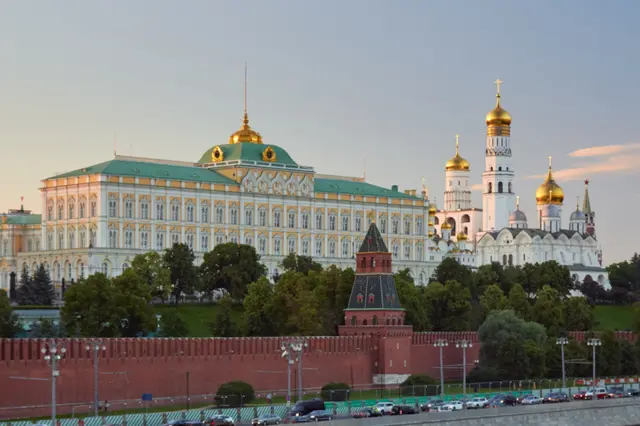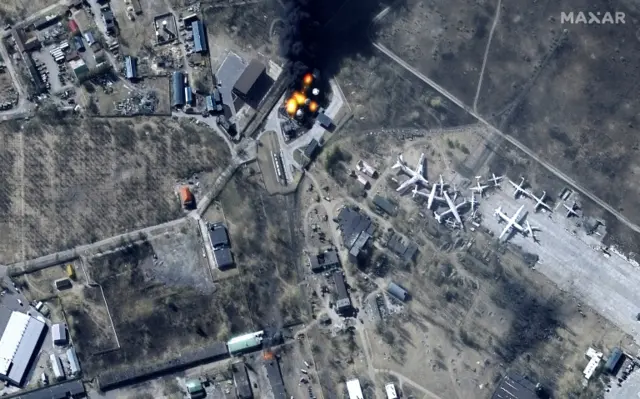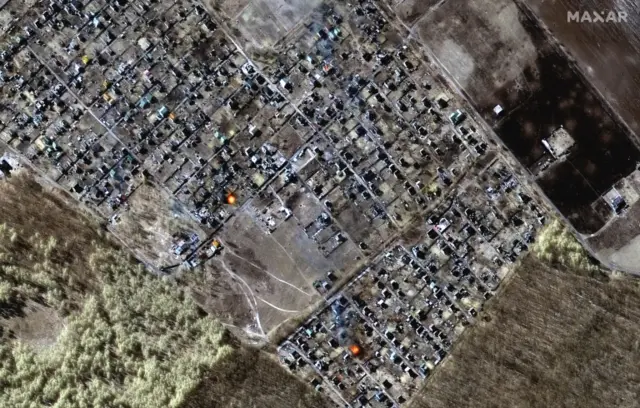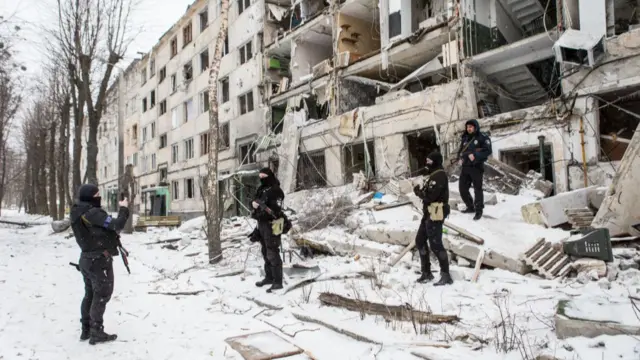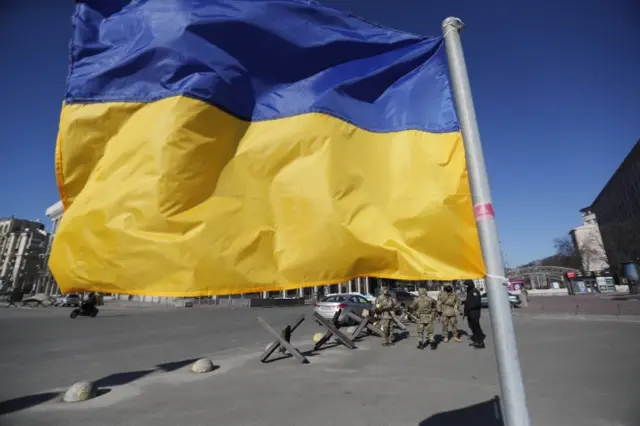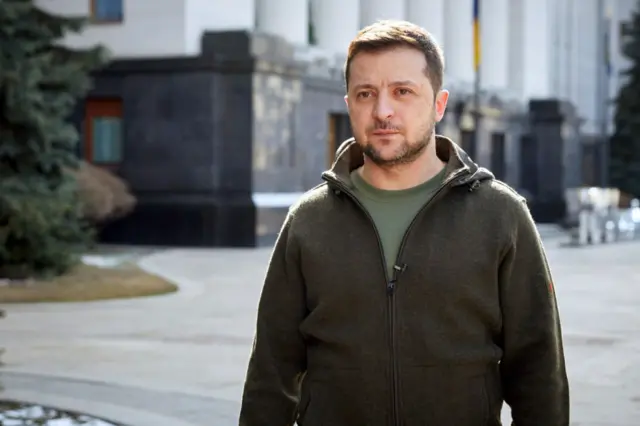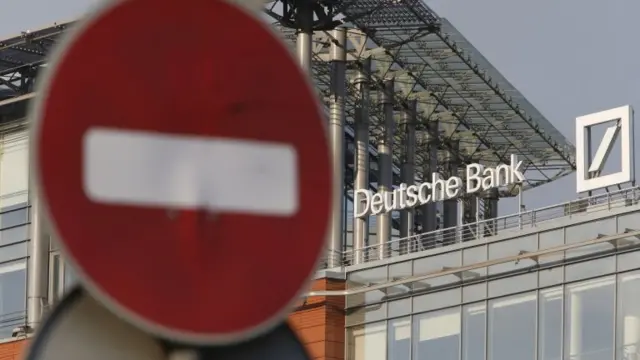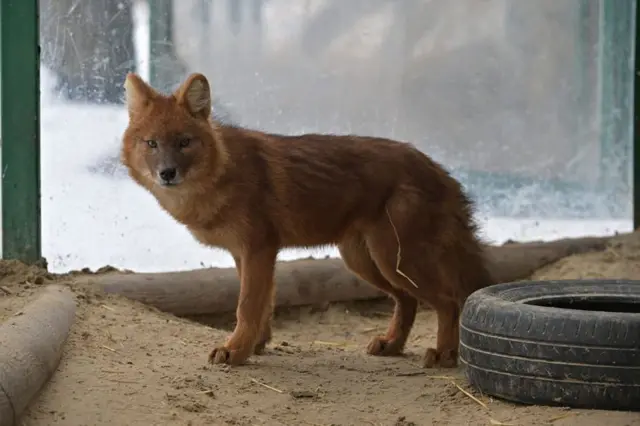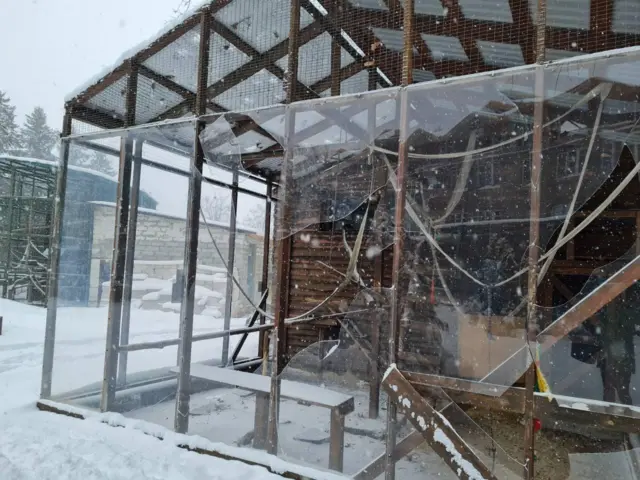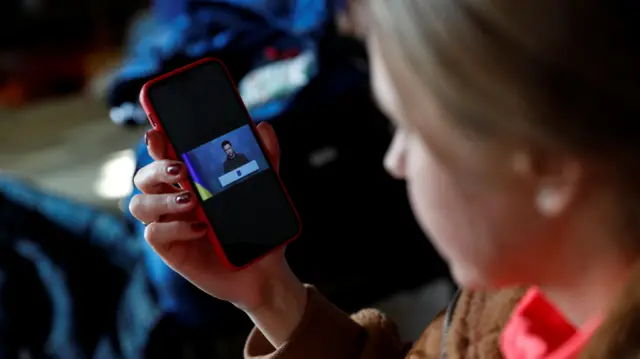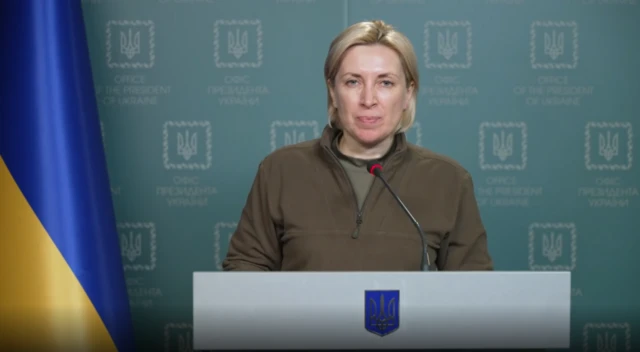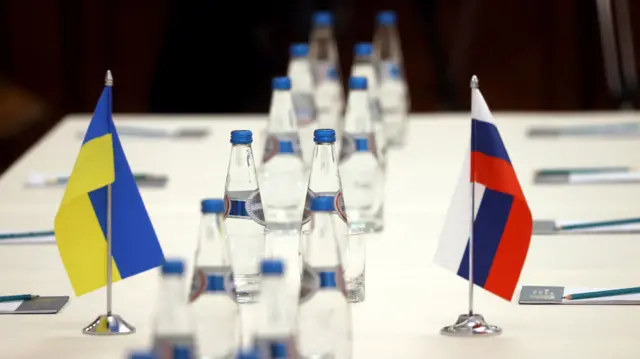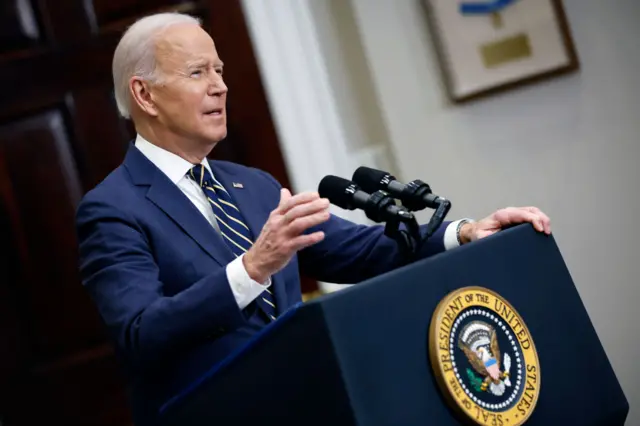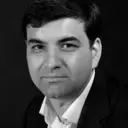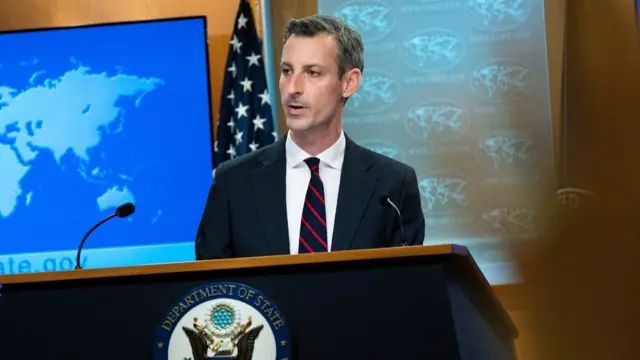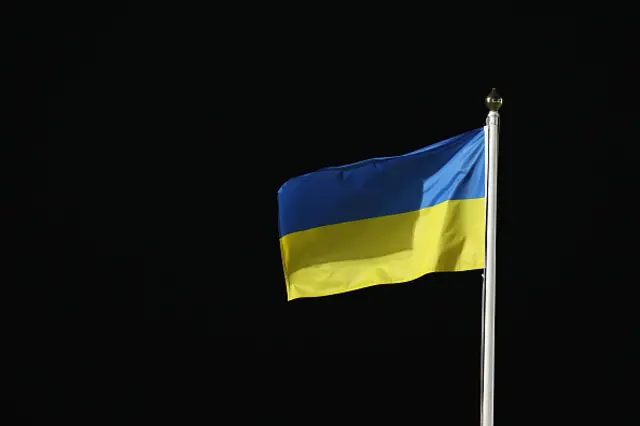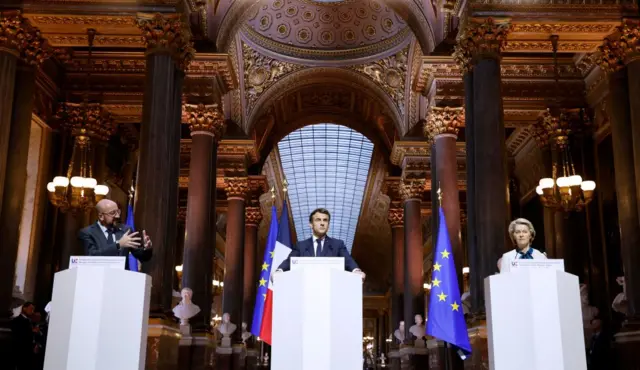Russia violating basic nuclear safety principles - USpublished at 23:42 GMT 11 March 2022
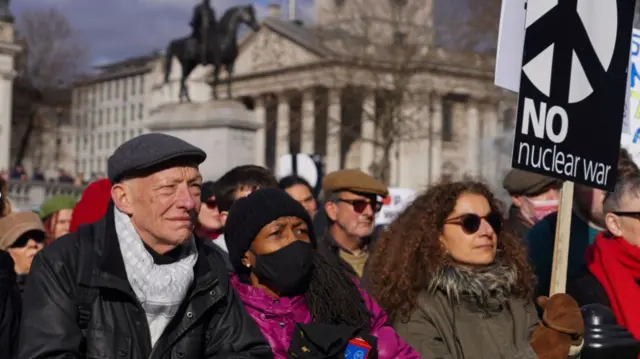 Image source, Getty Images
Image source, Getty ImagesA protester in London holds a sign reading 'no nuclear war'
"Continued Russian firing on nuclear facilities" in Ukraine is "reckless" and must stop, US Secretary of Energy Jennifer Granholm said in a newly-posted Twitter thread.
Radiation monitors in Ukraine are largely still functioning, added Granholm, who oversees the US nuclear arsenal, and no spikes in radiation have indicated any accidental release of radiation so far.
She said that the US cannot confirm Russian claims that power has been restored at Chernobyl, but says the Ukrainians have told the US that some diesel fuel has been shipped there to power the backup generators at the site of the 1986 nuclear disaster.
"Restoring outside electrical power at #Chernobyl, external is an important safety step and Russia must act quickly to allow restoration of power," she said, adding that shelling damage to a nuclear research facility in Kharkiv has not led to any significant safety risks.
"And we remain concerned that staff at #Chernobyl, external and #Zaporizhzhia, external are operating under duress and without proper rest, which is a safety risk," she added.
"Bottom line: Russia’s violation of basic nuclear safety principles is unacceptable, and the attacks that risk safety in Ukraine and beyond must stop."
